Are you ready to take the first step towards an exciting career in civil engineering? Writing a compelling internship application letter can open doors to valuable opportunities in this ever-evolving field. In this article, we'll guide you through crafting the perfect letter that highlights your skills, experiences, and enthusiasm for civil engineering. Stick around to discover essential tips that will help set your application apart!
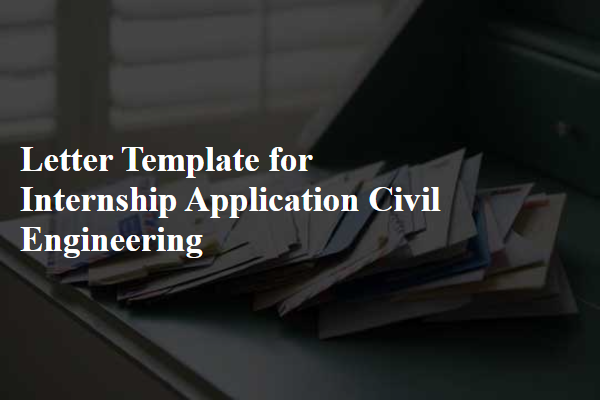
Contact Information
Contact information is crucial for effective communication in professional settings. It typically includes the individual's full name for identification, a phone number for immediate contact, and an email address for digital correspondence. Additionally, a physical address can provide context regarding the applicant's location, which may be relevant for internship opportunities. LinkedIn profiles, if applicable, can showcase professional background and connections within the civil engineering sector. Including a professional portfolio link may also enrich the application, showcasing past projects, certifications, and relevant skills related to civil engineering.
Introduction and Objective
Aspiring civil engineer seeking internship opportunities to enhance practical knowledge and apply theoretical concepts acquired during academic studies. Passionate about sustainable infrastructure development and urban planning. Aiming to contribute to innovative projects while gaining hands-on experience in structural design, project management, and construction techniques. Eager to collaborate with experienced professionals to foster understanding of industry standards and best practices in civil engineering within a dynamic work environment.
Relevant Academic Background
Civil engineering interns often require a robust foundation in relevant subjects such as structural analysis, fluid mechanics, and materials science. Universities like Massachusetts Institute of Technology (MIT) or Stanford University offer comprehensive programs focusing on design principles, sustainability, and project management. Key projects from coursework involving real-world applications can enhance a candidate's profile. Participation in internships or cooperative education experiences, particularly with renowned firms such as Bechtel or AECOM, can provide valuable hands-on exposure to construction processes, CAD software, and engineering ethics. This practical experience, alongside academic achievements such as a high GPA in core civil engineering subjects, establishes a strong case for prospective interns within competitive job markets.
Key Skills and Experiences
Civil engineering internships provide invaluable opportunities for aspiring professionals to gain hands-on experience in the construction and design of infrastructure projects. Key skills essential for success in this field include proficiency in AutoCAD (a computer-aided design software widely used in engineering) for creating detailed drawings, strong analytical abilities to evaluate structural integrity, and project management skills to oversee timelines and budgets effectively. Relevant experiences might include participation in university-led engineering projects, such as bridge design competitions or community service initiatives, where students apply classroom knowledge to real-world challenges. Additionally, internships often involve collaborating with senior engineers on site visits, learning about materials testing, and contributing to safety assessments, thereby enhancing both technical capabilities and teamwork proficiency.
Conclusion and Call to Action
Aspiring civil engineers seek practical experience to complement academic knowledge, enhancing skills in real-world applications. Internship opportunities at prestigious firms, like Jacobs Engineering Group or AECOM, provide invaluable insights into project management and design processes. Engaging with industry professionals allows interns to develop critical thinking and creative problem-solving abilities, essential for addressing infrastructure challenges. Candidates should demonstrate their motivation and enthusiasm for contributing to innovative projects addressing societal needs, such as sustainable development and urban planning. A strong call to action underscores eagerness to contribute effectively to team goals, inviting further discussion about potential contributions to the organization.
Letter Template For Internship Application Civil Engineering Samples
Letter template of civil engineering internship application for undergraduate students
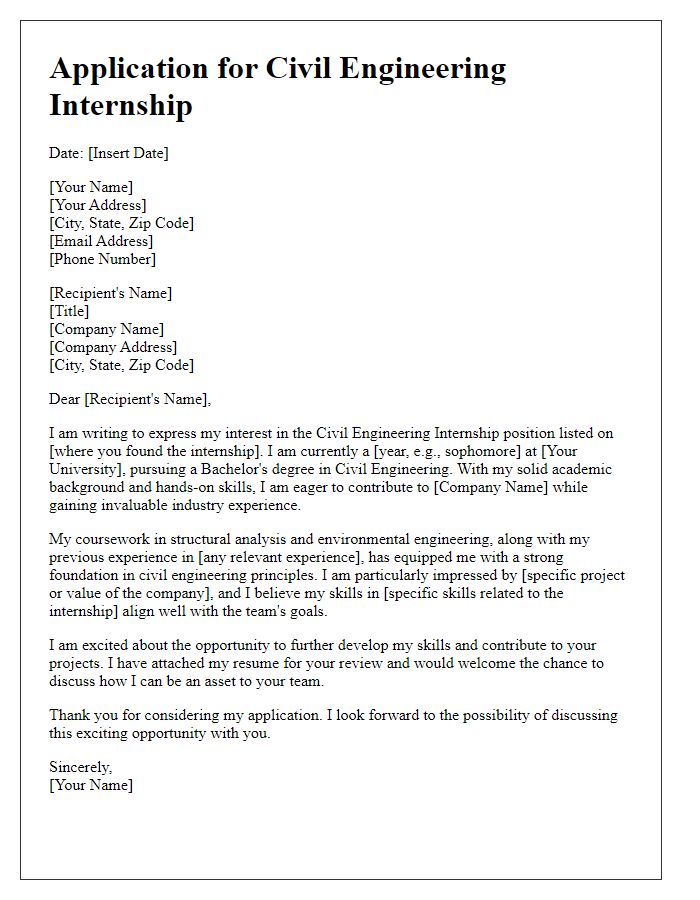
Letter template of internship application in civil engineering for recent graduates
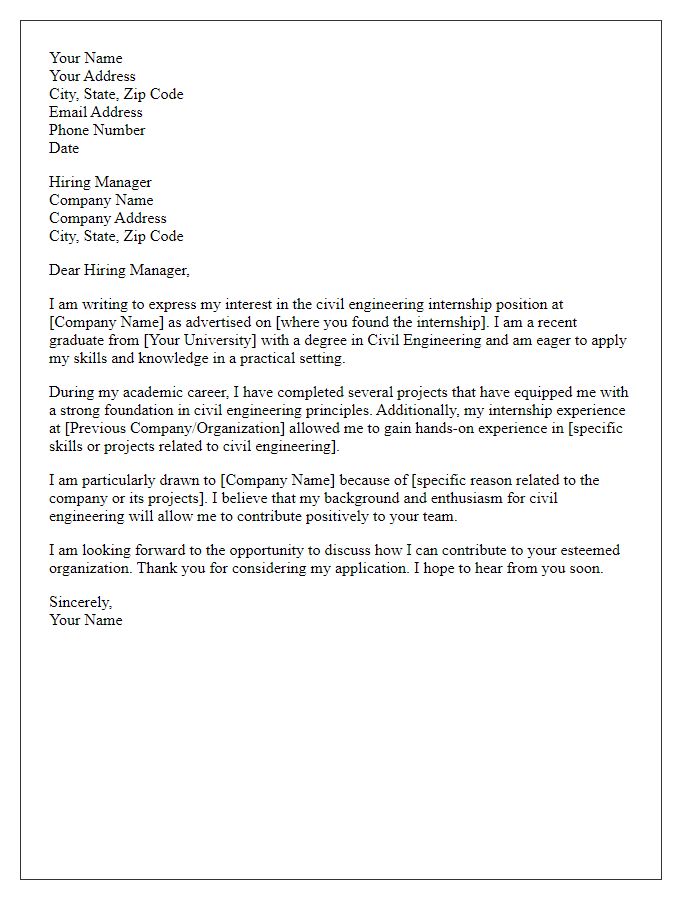
Letter template of civil engineering internship application for international students
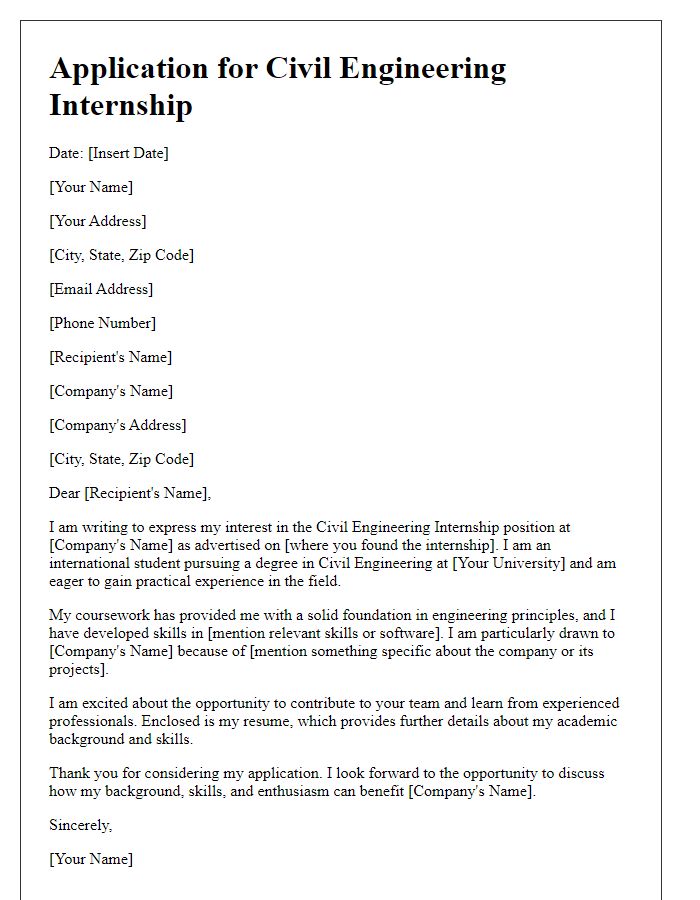
Letter template of application for a civil engineering internship position
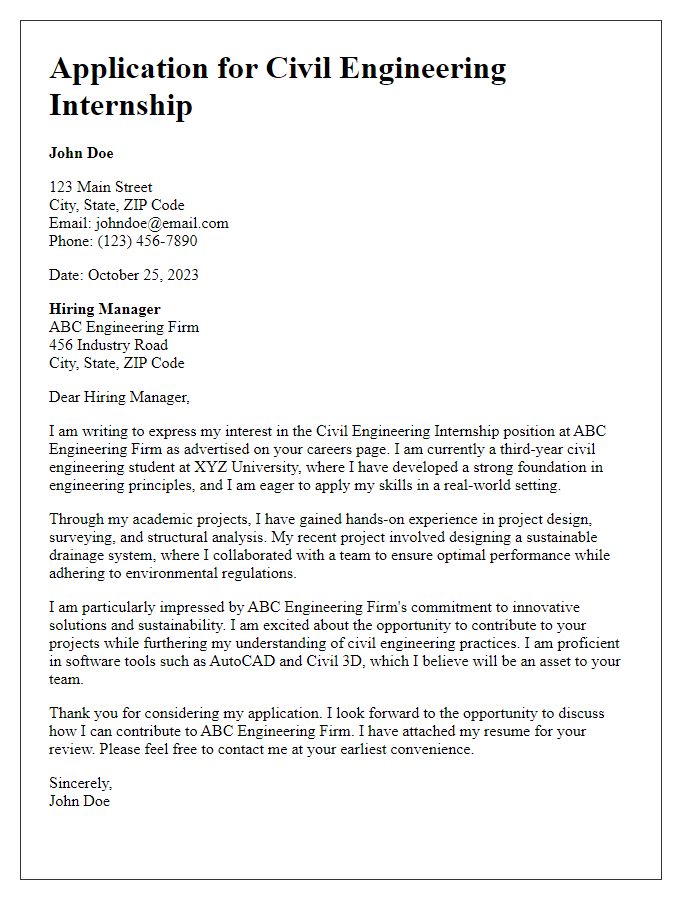
Letter template of civil engineering internship application for high school students
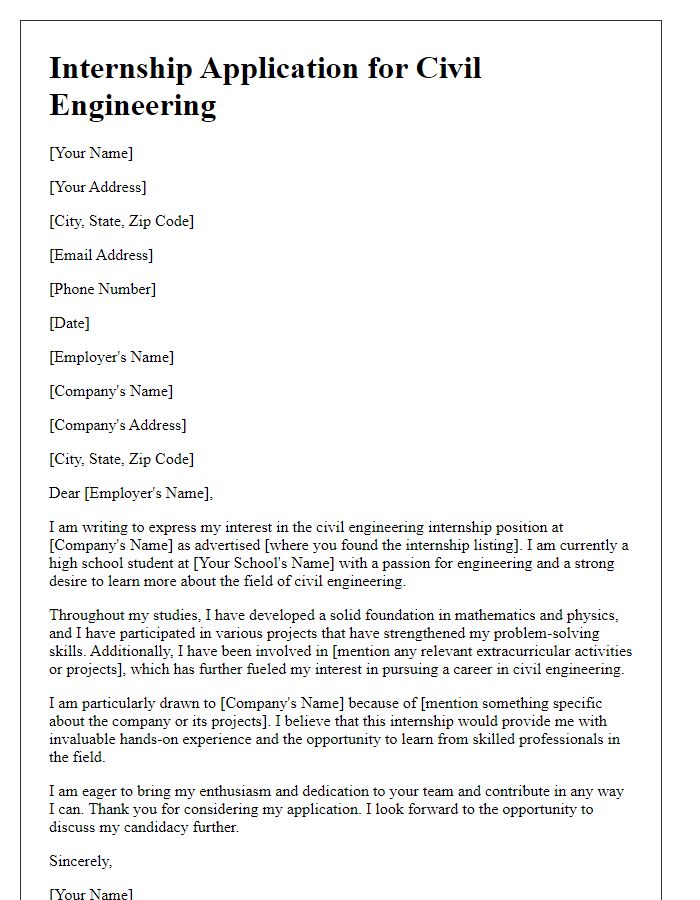
Letter template of application for a paid internship in civil engineering
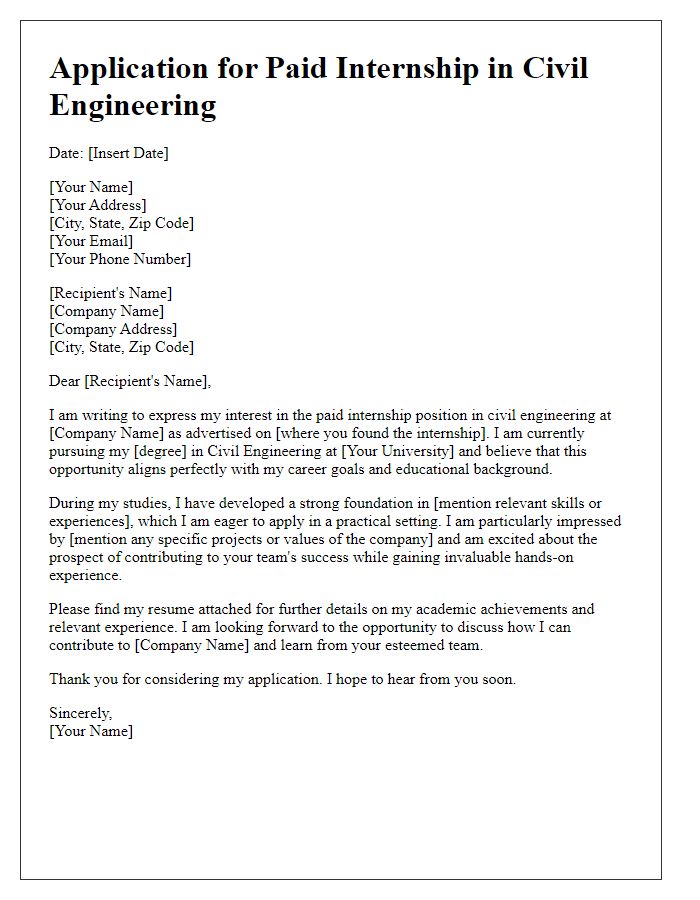
Letter template of civil engineering internship application for experienced candidates
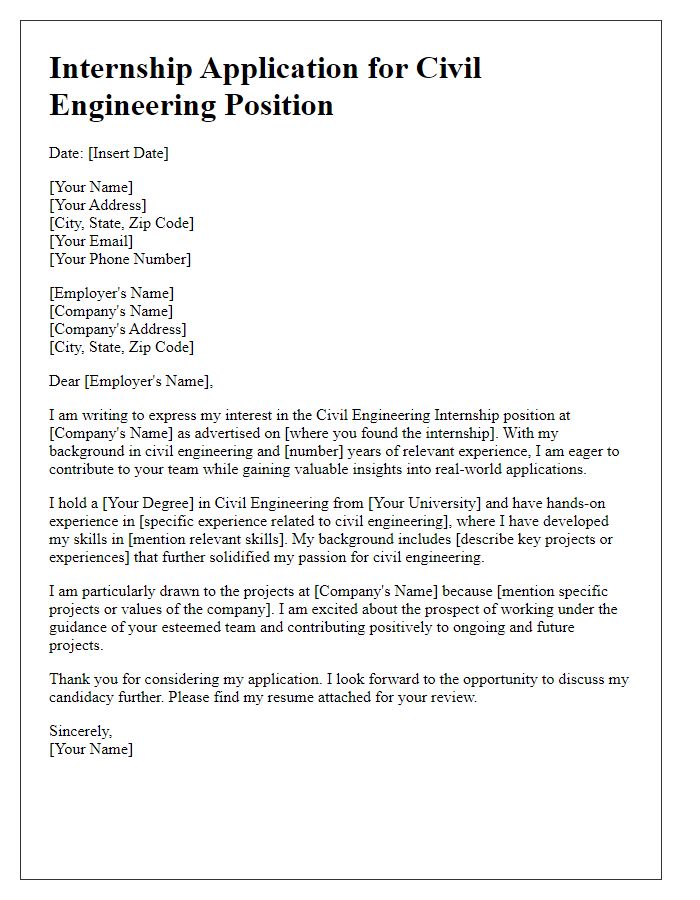

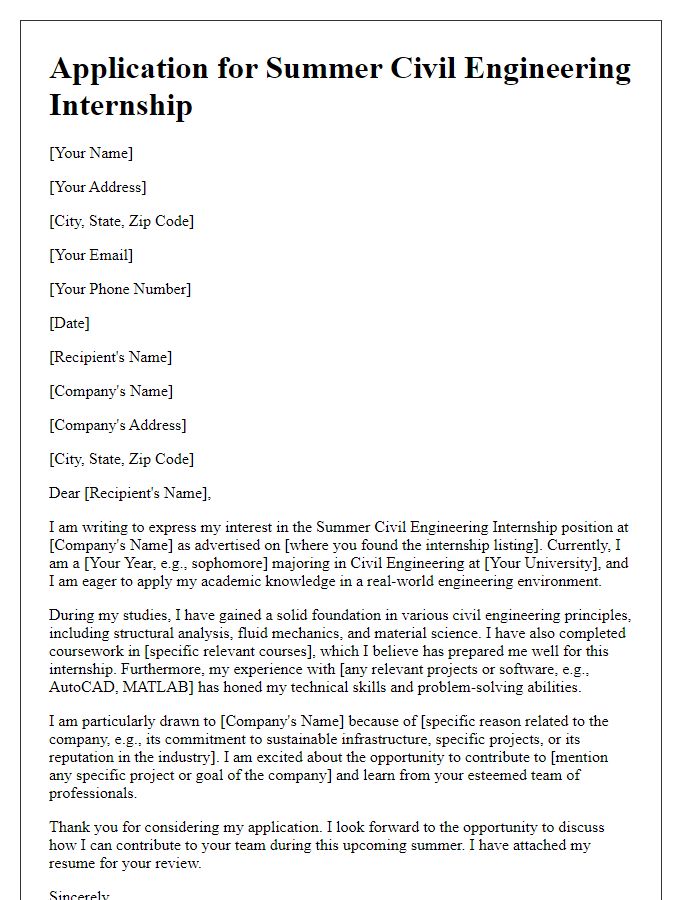
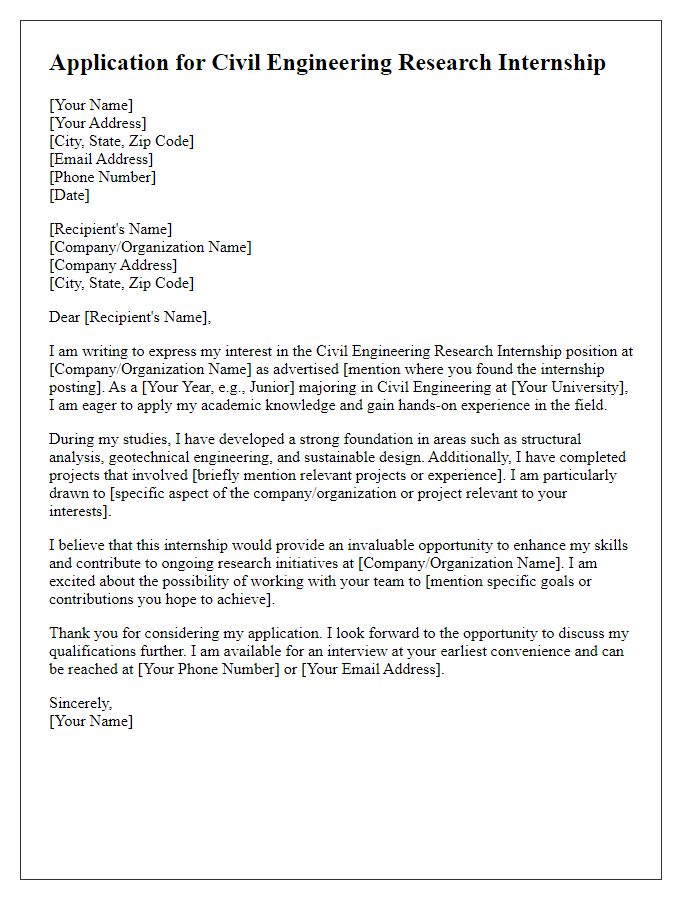
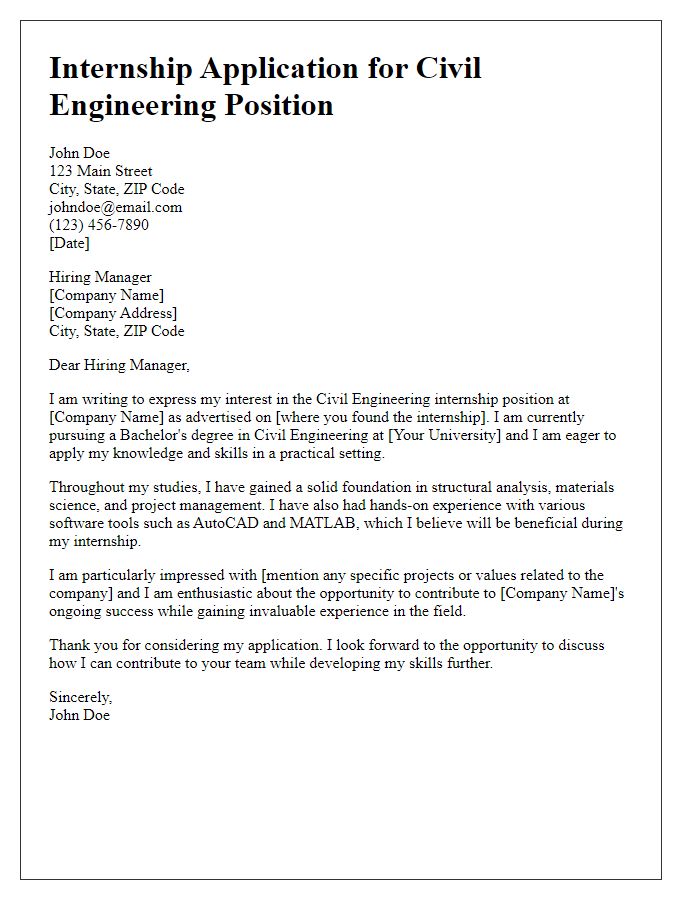


Comments